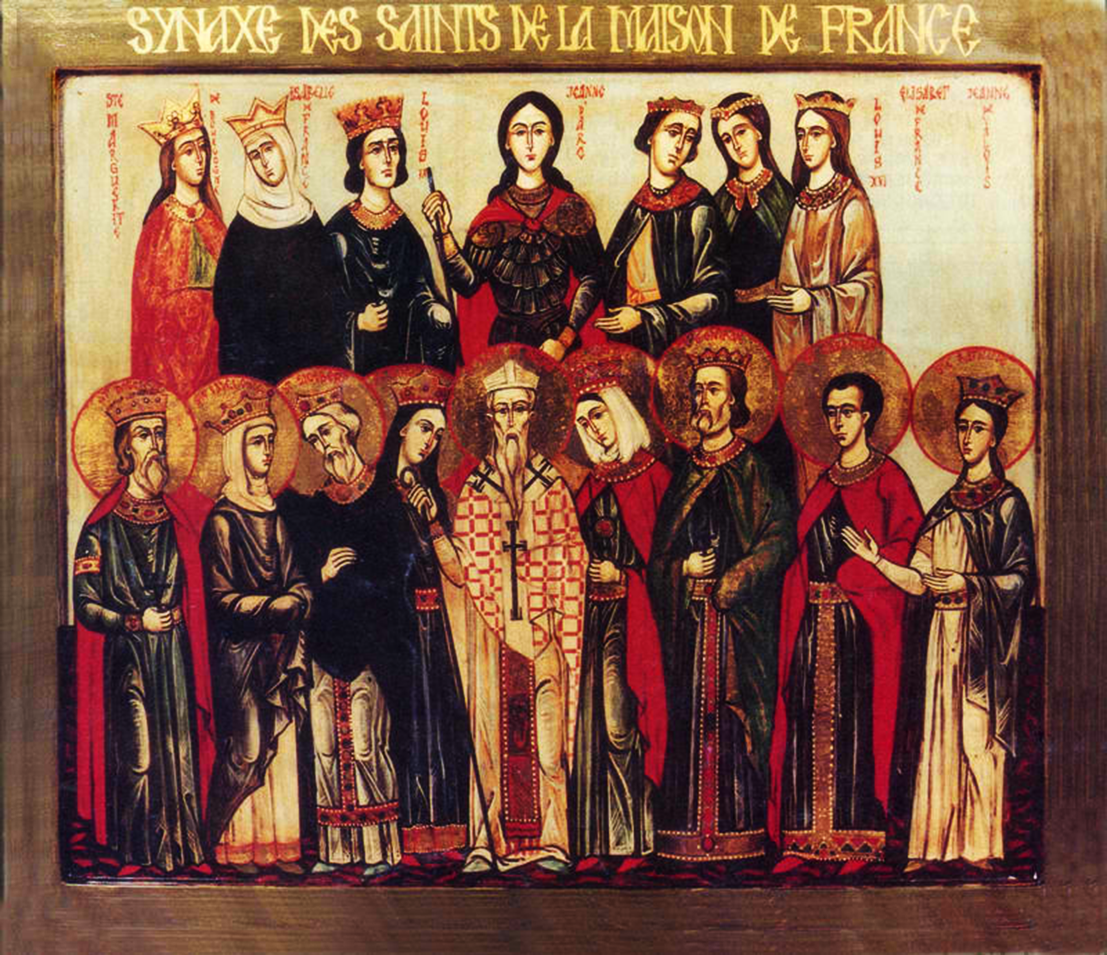Orthodox Saints of the Pre-Schism See of Rome

30th July
ABDON and SENNEN, according to tradition SS. Abdon and Sennen were Persian nobles, brought to Rome as captives by Emperor Decius (r. 249–251) after his first successful campaign against the Persians. Once there, they devoted themselves to looking after imprisoned Christians and burying the bodies of Martyrs. This led to them being imprisoned by the authorities and then fed to wild animals in the Amphitheatre during the Decian Persecution.
ERMENGYTH, a sister of St. Ermenburgh (19th November) who lived in great piety as a nun at Minster-in-Thanet, England. She is believed to have reposed circa 680.
MAXIMA, DONATILLA, and SECUNDA (MARTYRS of TEBOURBA), three maidens who were martyred circa 304 in Tebourba Minus, Africa Proconsularis (present-day Tebourba, Tunisia) during the Diocletianic Persecution.
OLAUS (OLAV, OLOF, OLAF, OLAVE) of SWEDEN, (Ninth Century), a King of Sweden who was martyred by pagan subjects for refusing to make offering to their gods. The location of St. Olav’s martyrdom served as the foundation of the city of Stockholm
PETER CHRYSOLOGUS, a native of Imola in present-day Italy; he was ordained to the diaconate there, and circa 433 consecrated eighteenth Archbishop of Ravenna (northern Italy). Though he battled both paganism and the Monophysite heresy, St. Peter is best remembered for his eloquence in preaching, thus the name Chrysologus (Golden Speech), St. Peter reposed circa 450. Many of his sermons are still extant.
RUFINUS, (Date Uncertain), according to legend, St. Rufinus was the first Bishop of Assisi in Umbria (central Italy), and a martyr. Many scholars postulate he is in all likelihood the same as the St. Rufinus and Companions listed on 11th August. St. Rufinus is also the patron saint of Assisi, Italy.
TATWINE (TATWIN) of CANTERBURY, the tenth Archbishop of Canterbury, succeeding St. Brithwald of Canterbury (9th January). Prior to being elevated to the See of Canterbury St. Tatwine was a monk and then Abbot at Holy Hill Monastery in Breedon, Mercia and was known for his piety and learning. St. Bede the Venerable (25th May) calls him a “vir religione et Prudentia insignis, sacris quoque literis nobiliter instructus” (a man notable for his prudence, devotion, and learning). We see examples of this in the two surviving manuscripts of riddles and four of his Ars de partibus orationis. The Ars is one of only two surviving eighth century Latin grammars from England. His Ars was a reworking of fourth century Roman grammarian Aelius Donatus’ (†380) Ars Minor and Major with the addition of information drawn from other grammarians. It covers the eight parts of speech through illustrations drawn from classical scholars, and was designed for more advanced students. This work was used not only in England but on the continent as well. During his brief episcopate, St. Tatwine appointed Nothbald, Abbot of St. Augustine’s Abbey, and consecrated Bishops for Lindsey and Selsey. St. Tatwine in reposed 30th July, 734 and was buried at Canterbury. Eleventh century Benedictine hagiographer Goscelin [of Canterbury] († after 1107) wrote of miracles through his intercession.
URSUS of AUXERRE, a hermit at the church of St. Amator in Auxerre in Burgundy (France) who at the age of seventy-five was elected tenth Bishop of that city. According to tradition he was elected after he had saved the town from a fire by his prayers. 508 is given as the year of his repose.
Prior to the Schism the Patriarchate of Rome was Orthodox, and fully in communion with the Orthodox Church. As Saint John of Shanghai and San Francisco +1966 said “The West was Orthodox for a thousand years, and her venerable Liturgy is far older than any of her heresies”.
Details of British Saints excerpted from Orthodox Saints of the British Isles.
Details of continental saints from these sources.
In many cases there are several spelling versions of the names of saints from the British Isles. I use the Oxford Dictionary of National Biography version as the primary version with the more prevalent version in parenthesis e.g. Ceadda (Chad) of Lichfield.
